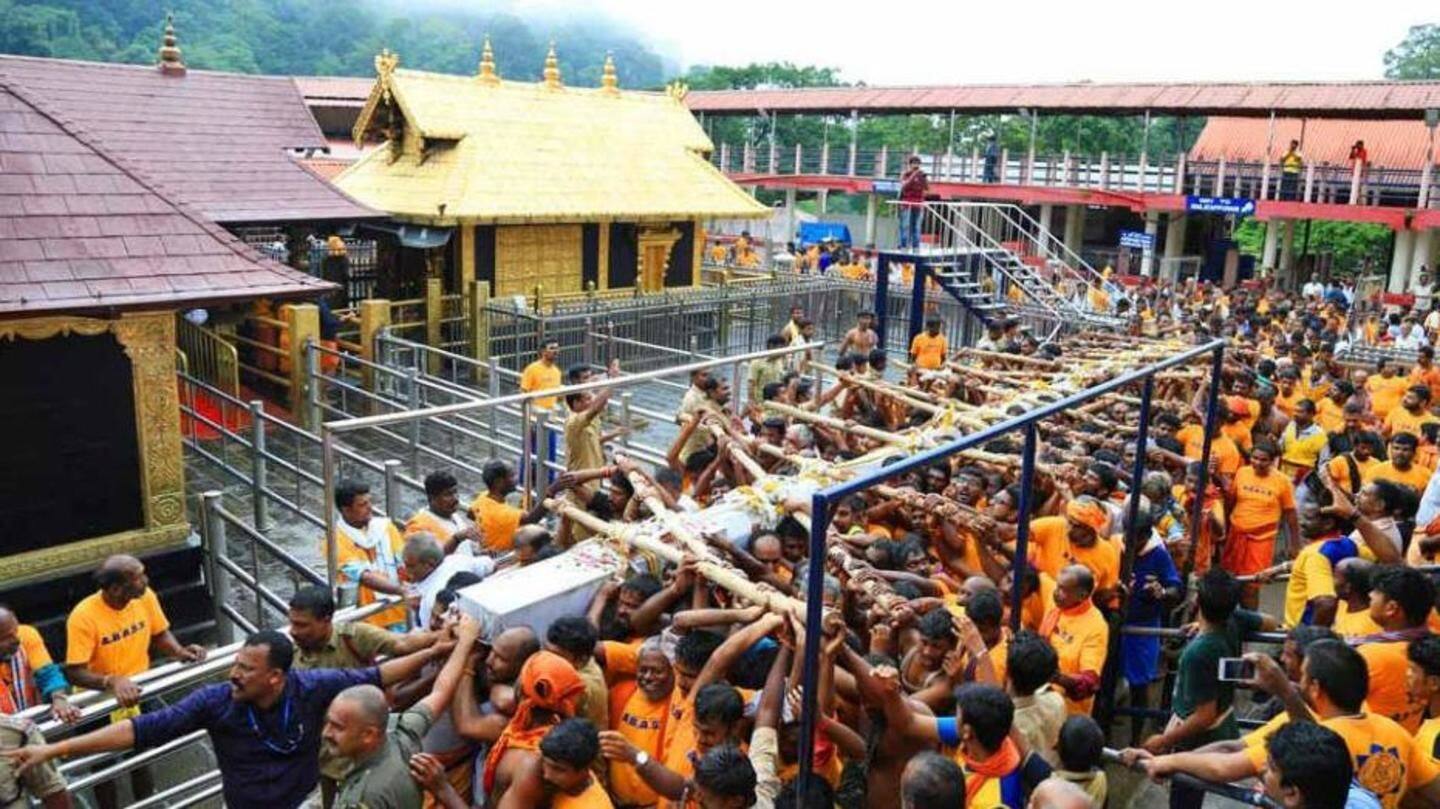
Temple-board to file review-petition because Lord Ayyappa is 'brahmachari'
What's the story
The Travancore Devaswom Board which administers the Lord Ayyappa Temple of Kerala will move court with a review petition after Friday's verdict of Supreme Court, which ended the ban on women's entry in the ancient temple. The board's President, A Padmakumar, said though the body 'respectfully accepted' the decision, it will go for a review petition after gaining support from religious heads. Here's more.
Favoring ban
Privacy of Lord Ayyappa needs to be upheld, says activist
Activist Rahul Easwar, who supported the ban, felt the verdict was not balanced. "The deity is in the form of Naishtika Brahmachari, and the deity's private space is the temple," he explained. Rahul added he hoped the review plea would be fruitful. "Until October 16 the temple is closed too, so we have time," he said.
Reception
Meanwhile, activist Trupti Desai welcomes judgment, calls it historic
While the temple board may be looking for other alternatives, the 4:1 verdict of SC has got an astounding welcome. Activist Trupti Desai said this was a historic victory. "Women have today got right to equality and we will soon declare a date to enter the Sabarimala Shrine," she added. As part of the 800-year-old rule, women aged between 10-50 weren't allowed to enter.
Verdict
In historic judgment, SC said gender can't lead to bias
The five-judge bench of SC headed by CJI Dipak Misra held that religious notions cannot trump equality and likened the ban to 'untouchability'. Notably, the temple opens for only 127 days in the entire year. CJI Misra said, "Lord Ayyappa is not a separate denomination". He added rules based on biological factors cannot muster the Constitution and slammed bias on the basis of gender.
Indu Malhotra
Interestingly, lone woman member of bench didn't agree with verdict
Justice Indu Malhotra was the lone dissenting judge on the bench, who said the court shouldn't interfere in matters of religion. The court should step in only if a practice becomes oppressive as 'sati', Justice Malhotra believed. Further, she added rights of women conflicted with the rights of Ayyappa worshipers. She also said this verdict wasn't only limited to Sabarimala and could've far-reaching consequences.